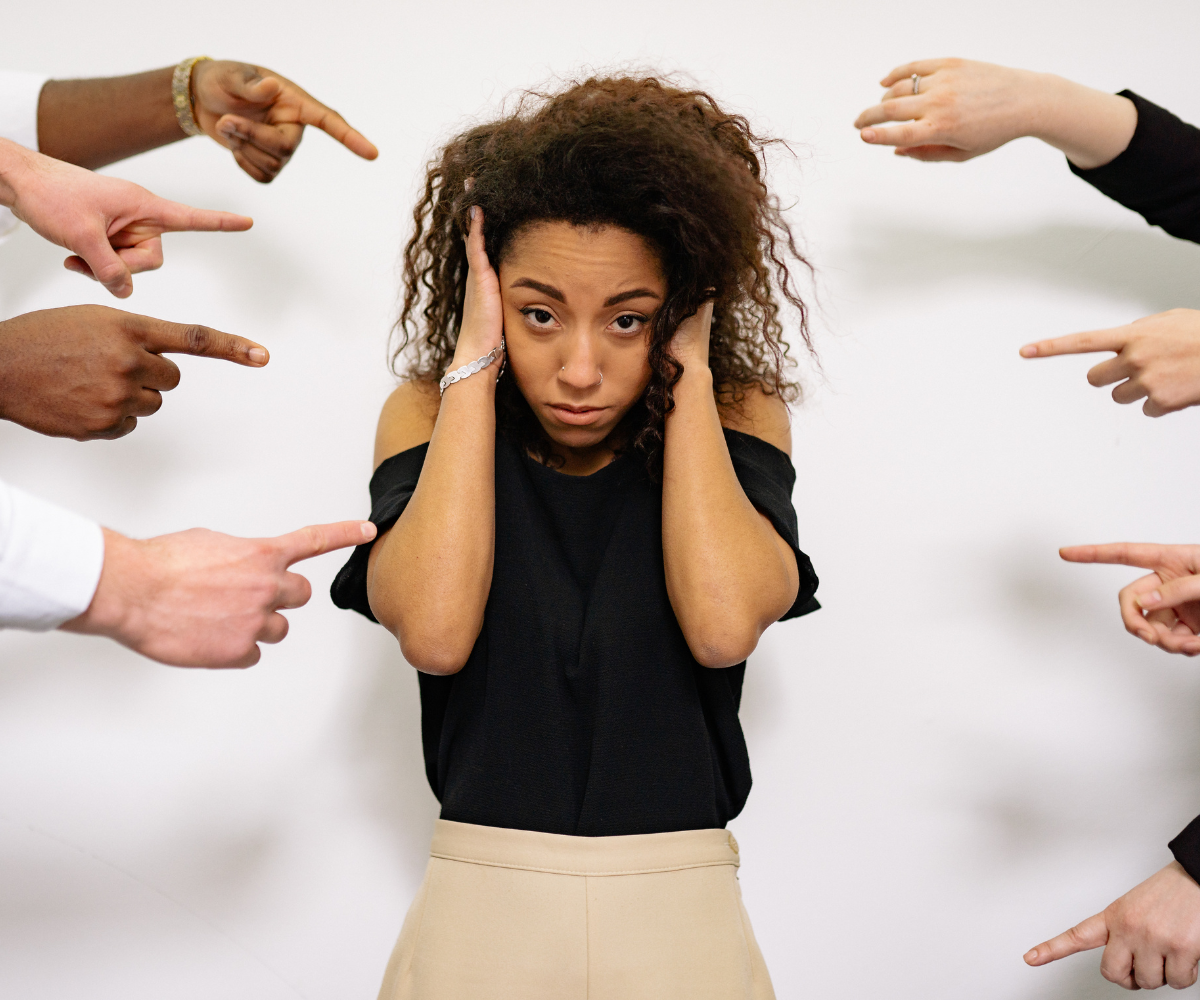Most Popular Types Of Anxiety Disorders – Tips And Treatments On How To Manage Each Type Inside
By: A Good Place Therapy
Anxiety is a common mental health condition that affects millions of people worldwide.
According to the Word Health Organization, 3.6 percent of the world’s population or 264 million people worldwide have an anxiety disorder.
It manifests in various forms, each with its own unique symptoms and triggers.
In this article, we will explore some of the most popular types of anxiety, provide tips and treatments for managing each type effectively, and answer frequently asked questions to help you gain a better understanding of this condition.
Let’s get right into it.
1. Generalized Anxiety Disorder (GAD)
What is generalized anxiety disorder?
Generalized Anxiety Disorder is characterized by persistent and excessive worry about various aspects of daily life.
Here are some tips for managing GAD:
Practice relaxation techniques: Engage in activities like deep breathing exercises, progressive muscle relaxation, or mindfulness meditation to calm your mind and reduce anxiety.
- Challenge negative thoughts: Use cognitive-behavioral techniques to identify and challenge negative or irrational thoughts that contribute to anxiety. Replace them with positive and realistic thoughts.
- Seek professional help: Consider therapy options such as cognitive-behavioral therapy (CBT) or counseling to learn coping strategies and develop healthier thinking patterns.
2. Social Anxiety Disorder (SAD)
What is social anxiety disorder?
Social Anxiety Disorder is characterized by intense fear and discomfort in social situations.
Here are some tips for managing SAD:
- Gradual exposure: Gradually expose yourself to social situations that make you anxious, starting with less intimidating settings. With practice, you can build confidence and overcome social anxiety.
- Develop coping mechanisms: Practice deep breathing exercises, positive self-talk, and visualization techniques to manage anxiety symptoms in social situations.
- Join support groups: Connecting with others who have similar experiences can provide a sense of understanding and support. Consider joining support groups or seeking therapy specialized in social anxiety.

3. Panic Disorder
What is panic disorder?
Panic Disorder involves recurrent and unexpected panic attacks, often accompanied by intense physical symptoms.
Here are some tips for managing Panic Disorder:
- Breathing exercises: Focus on slow, deep breaths during a panic attack to help regulate your breathing and calm your body.
- Grounding techniques: Use grounding techniques like focusing on your senses or repeating a calming mantra to bring yourself back to the present moment and reduce panic symptoms.
- Medication and therapy: Consult with a mental health professional who may recommend a combination of medication and therapy, such as cognitive-behavioral therapy or exposure therapy.
4. Specific Phobias
What are specific phobias?
Specific Phobias are characterized by intense and irrational fears of specific objects or situations.
Here are some tips for managing Specific Phobias:
Gradual exposure therapy: Work with a therapist who specializes in phobias to gradually expose yourself to the feared object or situation, helping you build tolerance and decrease anxiety over time.
Relaxation techniques: Use relaxation techniques like deep breathing, visualization, or progressive muscle relaxation to manage anxiety symptoms when confronted with your phobia.
Seek professional help: A therapist can guide you through evidence-based treatments such as Cognitive Behavioral Therapy (CBT) or Eye Movement Desensitization and Reprocessing (EMDR).
Frequently Asked Questions About Anxiety
Can anxiety disorders be cured completely?
While anxiety disorders can be effectively managed and symptoms can be significantly reduced, a complete cure may vary depending on individual circumstances.
Are medications necessary for anxiety treatment?
Medications can be helpful in managing anxiety disorders, but their necessity depends on the severity of symptoms and the recommendations of a healthcare professional.
How long does it take to see improvements with anxiety treatment?
The timeline for improvement varies from person to person. It depends on factors such as the type and severity of anxiety, the chosen treatment, and individual responsiveness.
What is the most common form of anxiety?
The most common form of anxiety is generalized anxiety disorder (GAD). People with GAD experience excessive and persistent worry or anxiety about various aspects of their lives, such as work, health, or personal relationships. This type of anxiety is not limited to specific situations or triggers and can be challenging to control.
What is the rarest type of anxiety?
While it’s challenging to determine the absolute rarest type of anxiety, one relatively uncommon anxiety disorder is selective mutism. Selective mutism is characterized by an individual’s consistent failure to speak in specific social situations, such as school or public settings, despite being able to speak in other contexts. This condition is typically observed in children.
What is regular anxiety called?
Regular anxiety is often referred to as “normal” or “everyday” anxiety. It is a natural and common emotional response to stress or perceived threats. Regular anxiety can help us stay alert and focused in challenging situations. However, when anxiety becomes excessive, uncontrollable, and interferes with daily life, it may indicate an anxiety disorder.
What is considered extreme anxiety?
Extreme anxiety is often associated with panic disorder or severe forms of anxiety disorders. It involves intense and overwhelming feelings of fear, apprehension, or dread. Physical symptoms such as rapid heartbeat, chest pain, sweating, and trembling may accompany extreme anxiety. This level of anxiety can significantly impact a person’s ability to function and require professional intervention.
What is the mildest anxiety?
The mildest form of anxiety is often described as mild or occasional worry or nervousness that does not significantly interfere with a person’s daily life. It is a normal response to stressors and can even motivate individuals to perform better. Mild anxiety is typically manageable and subsides as the triggering event or situation resolves.
Who typically gets anxiety?
Anxiety can affect individuals of all ages, genders, and backgrounds. It is estimated that approximately 1 in 3 adults will experience an anxiety disorder at some point in their lives. Anxiety disorders can develop due to a combination of genetic, environmental, and psychological factors. While anyone can experience anxiety, certain risk factors, such as a family history of anxiety, traumatic experiences, or high-stress lifestyles, may increase the likelihood of developing an anxiety disorder.
What type of person is prone to anxiety?
There is no single type of person prone to anxiety, as anxiety disorders can affect individuals from all walks of life. However, certain personality traits, such as being highly sensitive, perfectionistic, or having a tendency to overthink, can contribute to an increased susceptibility to anxiety. Additionally, individuals who have experienced trauma, have a history of mental health issues or are facing significant life stressors may be more prone to developing anxiety disorders.
What is high-functioning anxiety?
High-functioning anxiety refers to individuals who experience anxiety but continue to function and fulfill their daily responsibilities. They may appear outwardly successful, driven, and high-achieving, but internally they struggle with constant worry, perfectionism, and a fear of failure. These individuals may push themselves to meet high standards but often experience stress and pressure due to their anxiety.
How to date someone with anxiety?
Dating someone with anxiety requires empathy, understanding, and open communication. Here are some tips to support a partner with anxiety:
- Educate yourself about anxiety disorders to better understand their experiences.
- Create a safe and non-judgmental space for them to express their feelings and concerns.
- Be patient and understanding when they face anxiety-related challenges.
- Encourage them to seek professional help if needed and offer support during their treatment.
- Practice active listening and validate their emotions without dismissing or minimizing them.
- Be flexible and understanding when it comes to social situations that may trigger their anxiety.
- Foster a calm and supportive environment, and avoid putting pressure on them to “get over” their anxiety quickly.
Can people with anxiety be loved?
Absolutely! People with anxiety can and do experience love and form meaningful relationships. Having anxiety does not diminish one’s capacity to give and receive love. It’s important to remember that everyone is unique, and anxiety does not define a person’s worth or ability to be loved.
Why dating someone with anxiety is hard?
Dating someone with anxiety can present challenges due to the additional considerations and support required. Some reasons why it may be challenging include:
- Difficulty in understanding and empathizing with their anxiety-related experiences.
- Unpredictable nature of anxiety symptoms, which can affect plans and activities.
- The need for flexibility and understanding when anxiety triggers arise.
- Balancing their needs with your own, ensuring self-care while being supportive.
- Communicating effectively to address concerns and maintain a healthy relationship.
- Encouraging professional help when necessary and navigating treatment options.
Despite the challenges, with patience, understanding, and open communication, it is possible to have a fulfilling and loving relationship with someone who experiences anxiety.
Please note that these answers are for informational purposes only and should not replace professional advice. If you or someone you know is struggling with anxiety, it is recommended to seek guidance from a qualified mental health professional.
Conclusion
Understanding the different types of anxiety and learning effective management strategies is crucial for those experiencing anxiety symptoms.
By following the tips provided and seeking appropriate treatment, individuals can gain control over their anxiety and lead fulfilling lives. Remember, reaching out to mental health professionals is essential for personalized guidance and support throughout your anxiety management journey.
If you have any questions about our article, “Most Popular Types Of Anxiety – Tips And Treatments On How To Manage Each Type Inside” or need help with anxiety, feel free to contact us at [email protected] or on social media or LiveChat.





